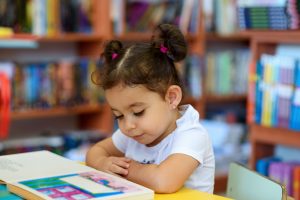Is It Better To Read On Paper Or Computer?
What are the similarities and differences between reading traditional books and multimodal books and games on iPads? The iPad educational apps of leveled books and word games look very inviting. But in one research project a teacher, Carly Willamowski, found that five- and six-year-old struggling readers soon became tired of the apps and continually wanted interaction with the teacher. The children kept on asking Carly, ‘Is this right?’, ‘Will I go here next?’ and urging her to ‘Look what I’ve done.’ Although the iPad apps were designed for individual practice of reading books, phonic and high-frequency word games, the young readers wanted human interaction, not the check-box feedback from the apps.
Learning to read does involve learning to use reading strategies like letter-sound knowledge, syntax and meaning but struggling readers also need a reason to persist. Listening to great stories read aloud – adventure, mystery, fantasy or fairy tales – can provide the reason for struggling beginning readers to persist when challenged. Books introduce young readers to the pleasure of imaginative worlds and the opportunity to compare life-to-literature and literature-to-life. Good books provide the rules and roles of everyday life that can be used in playful ways, negotiated and puzzled over.
What do you think about iPads and reading? I really enjoy reading traditional paper books and also books on a Kindle but find the backlight from a tablet screen hurts my old eyes.
This article looks at a toddler’s engagement with traditional books and electronic books on an iPad.
The Age: Monsters in the children’s app store (PDF file). Susan Hill.


